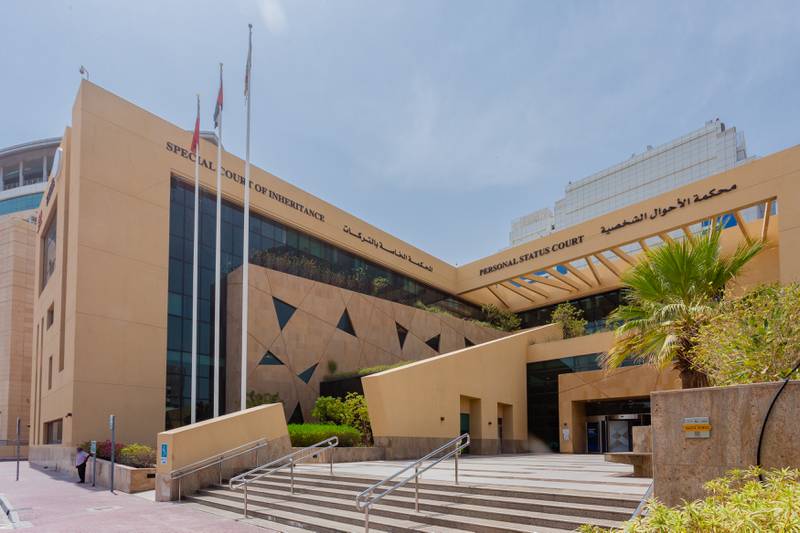New Dubai court dealing with inheritance disputes to open in September
Abu Dhabi, Aug 2022 – (The National)
A new court dedicated to dealing with inheritance disputes involving Muslims and non-Muslims of all nationalities will open in Dubai in September.
The announcement was made by officials on Thursday at a press conference at the Dubai Court of Personal Status.
Claims can be registered online and will first be seen by a preparatory judge who will revise them and attempt to bring about an amicable settlement.
Documents that are not in Arabic must be translated by a legal translation office approved by the Ministry of Justice in the UAE before being uploaded online.
If a combination of civil, real estate or commercial disputes arises from one inheritance claim, the judge will register them as separate cases with different reference numbers.
Within 30 days of the date of registration, all cases, along with the legal opinion of the preparatory judge, will then be referred to a panel of three judges who will make a decision.
“The court will have two judicial circuits consisting of three judges each,” said Judge Mohammed Al Shamsi, president of the Inheritance Court.

Each panel includes a judge from the court of first instance, another from the appeals court and a third from the court of cessation.
“This is to ensure all inheritance cases and the cases that relate to them or may arise from them go though the three levels of courts before one judiciary body in a time frame that we hope will not exceed a maximum of one year.
”Some cases, however, may take longer than a year due to the amount of money or assets being disputed.
“The court will settle disputes related to wills, inventory lists, liquidation of estate, division of funds among heirs, expulsion and entry of an heir, and civil, real estate or commercial cases that may arise from the inheritance claim or any other incidental requests,” Mr Al Shamsi said.
Judgments by the court are final and are not subject to appeal except through a petition for reconsideration.
Mr Al Shamsi explained that before going to court, all debts must have been paid and all wills enacted.
The court will aim to simplify and accelerate litigation procedures to avoid wasting time, he said.
When a case is sent to the court, judges will attempt to settle before they proceed with hearings.
Tarish Eid Al Mansoori, director general of Dubai Courts, said the establishment of the dedicated court came after a decision by Sheikh Maktoum bin Mohammed, Deputy Prime Minister, Minister of Finance and Deputy Ruler of Dubai.
“This is the first court of its kind in the world that brings inheritance cases and cases that branch out from them under one roof. No other court has taken this step yet,” said Mr Al Mansoori.
How Dubai’s new court works
Step 1: The case is registered at the Dubai Court of Personal Status.
Step 2: A settlement is suggested by the court.
Step 3: If a settlement is not agreed upon, the case is referred to the Court of Inheritance.
Step 4: A preparatory judge will revise the claim, trace cash and assets, ensure debts have been paid, handle legal correspondence and register other cases that may arise from the original inheritance case.
Step 5: Cases are referred to a panel of judges at the Court of Inheritance
Step 6: Settlement is suggested again.
Step 7: If a settlement is still not agreed upon, judges at the Court of Inheritance will proceed with hearings.
Step 8: Following court hearings, a final judgment will be issued.

